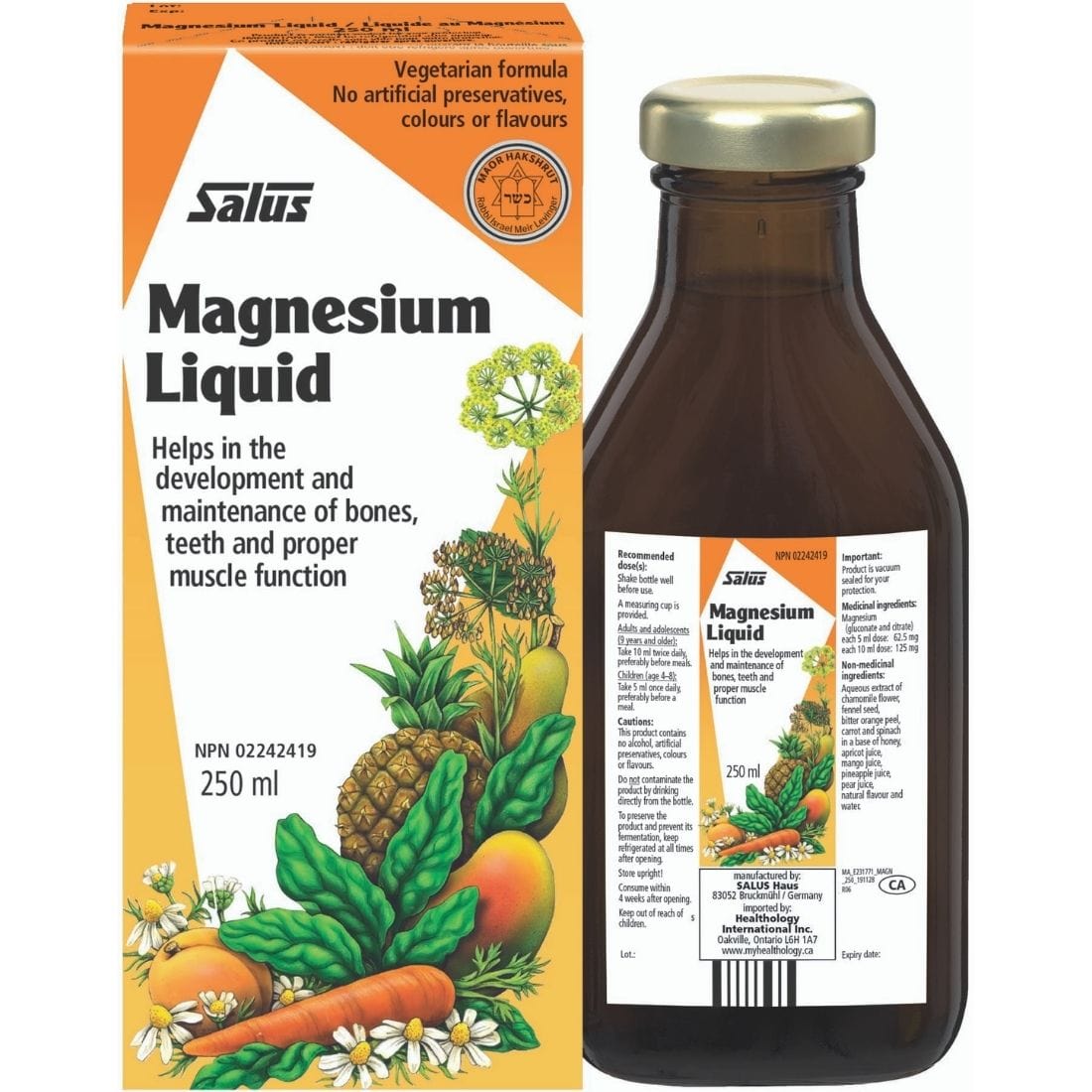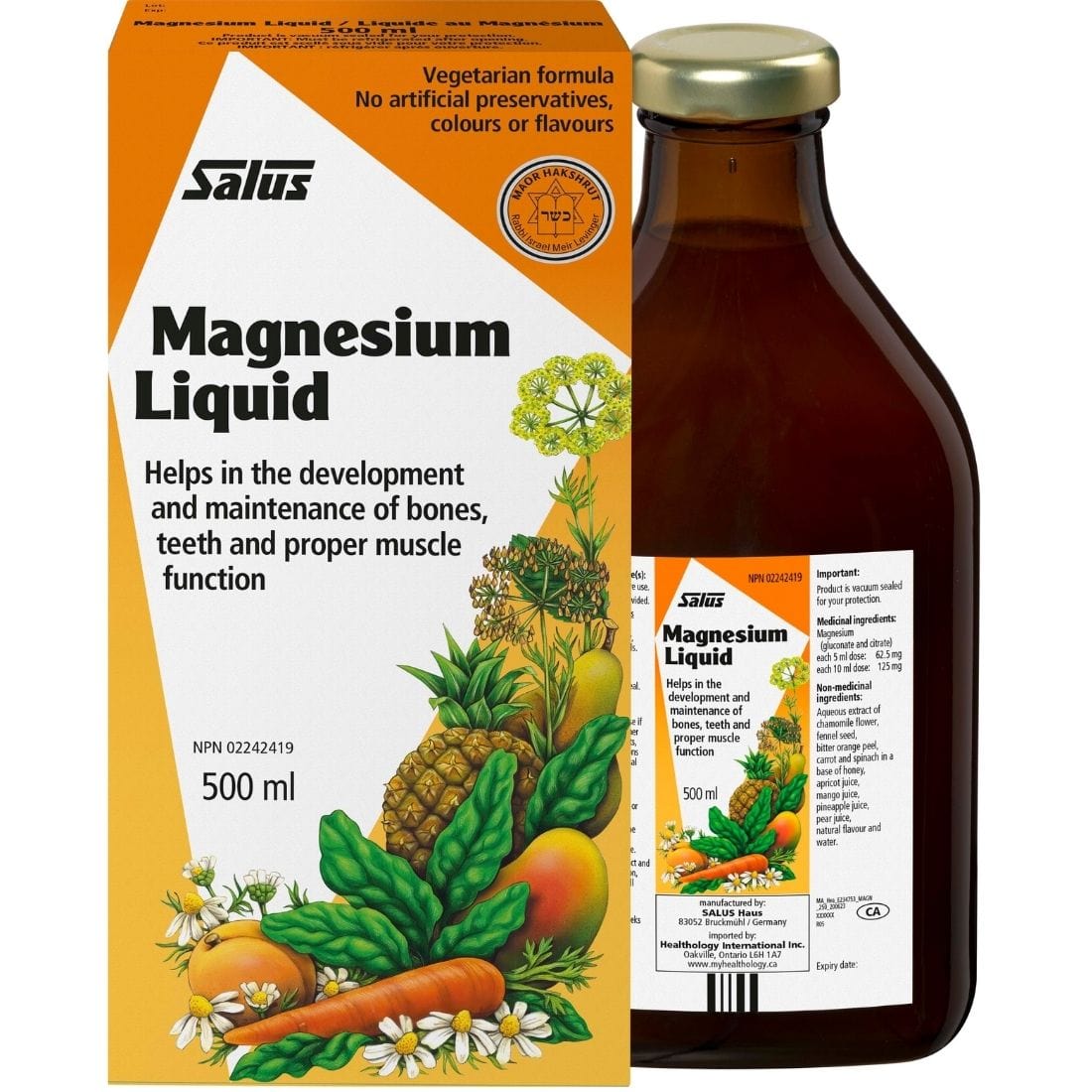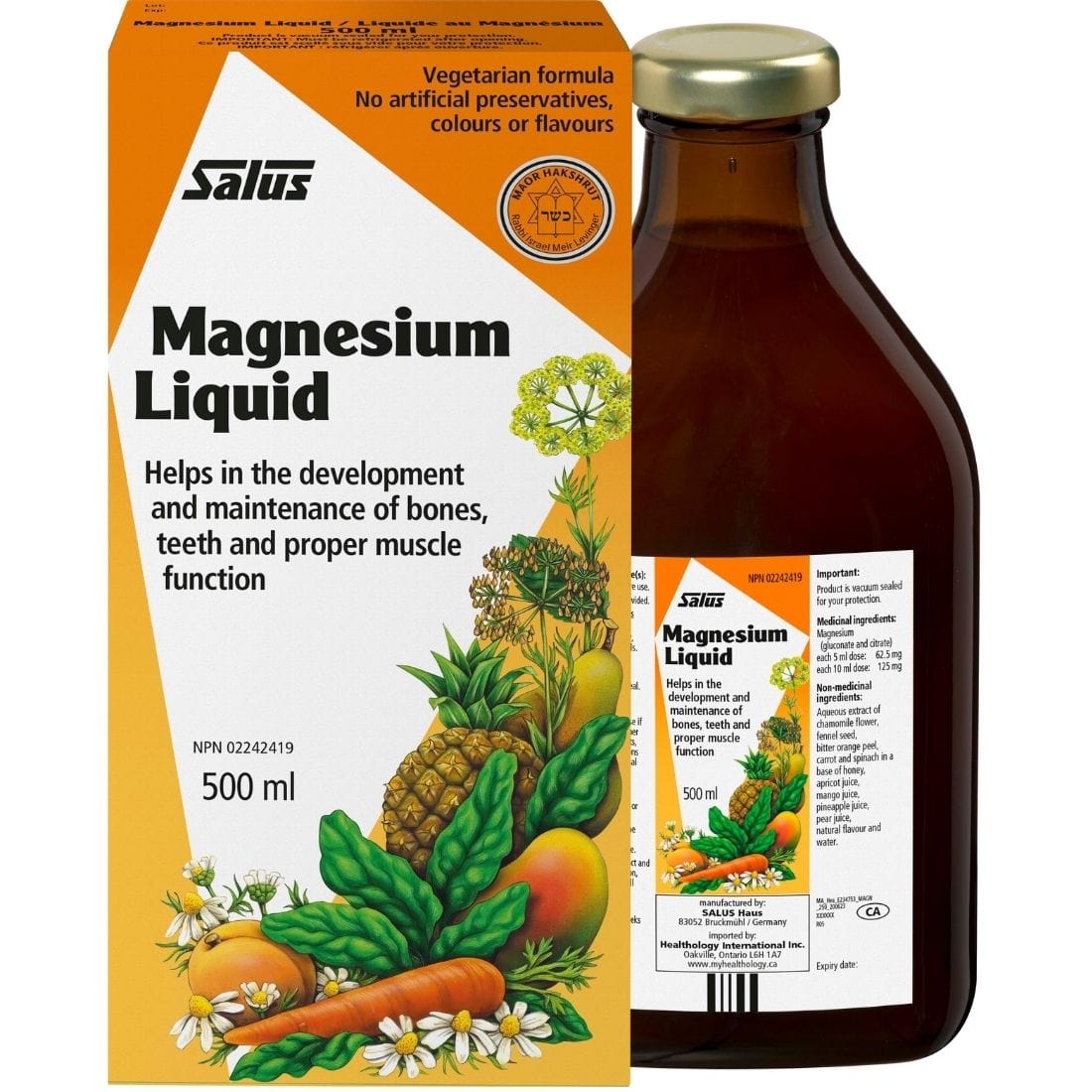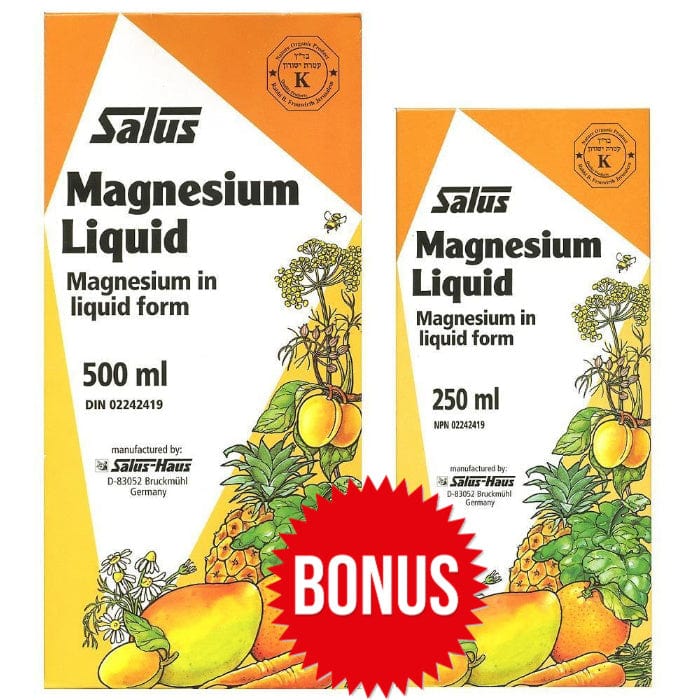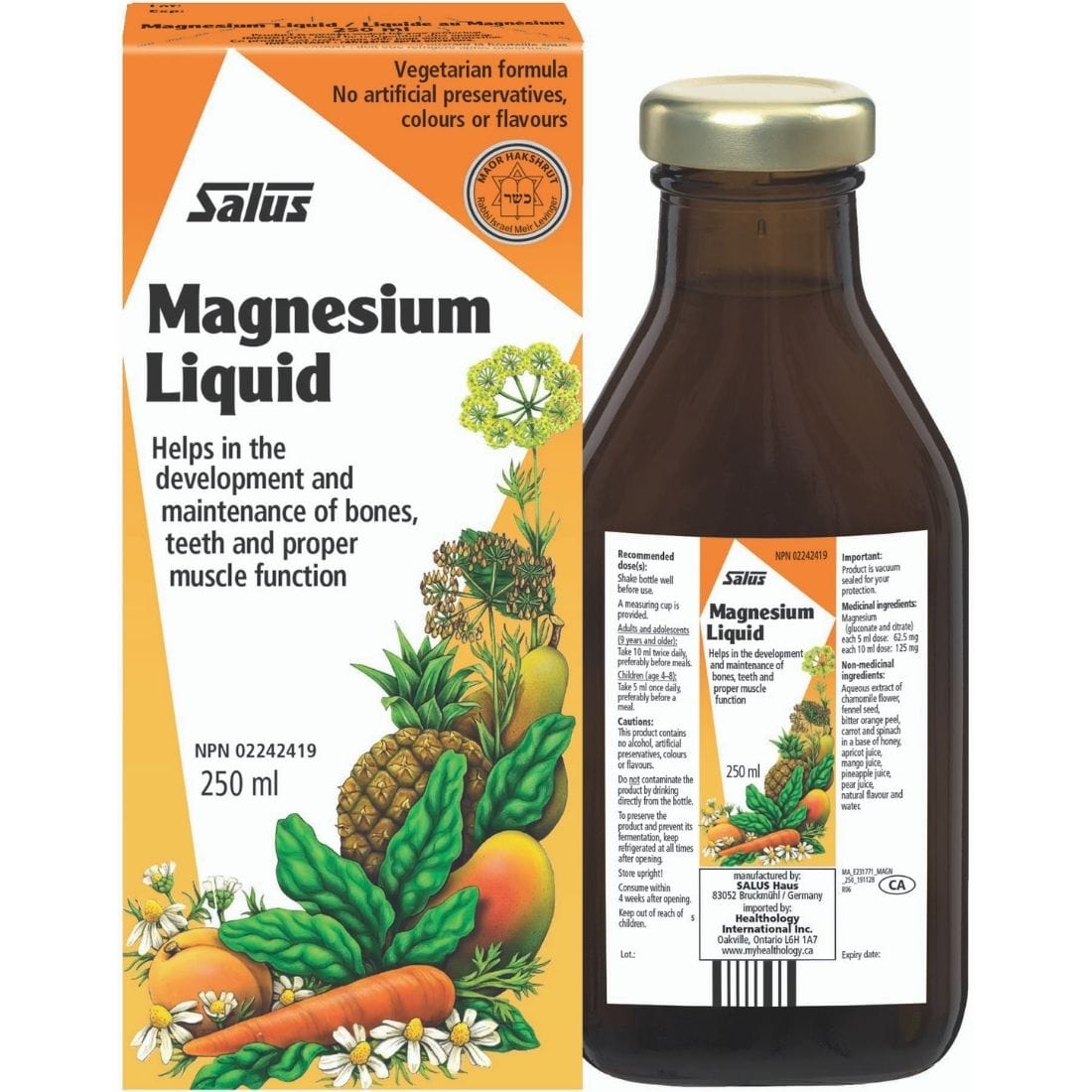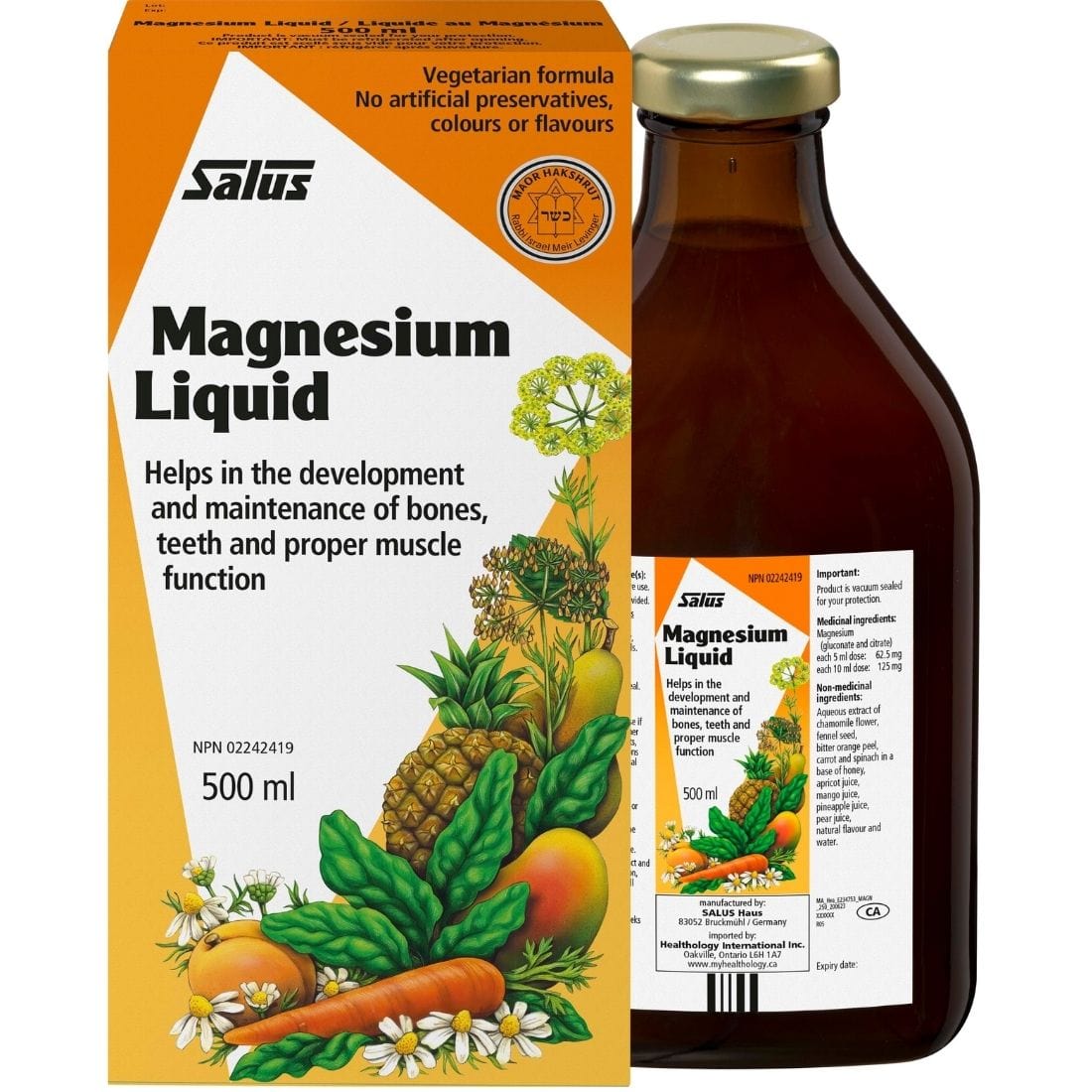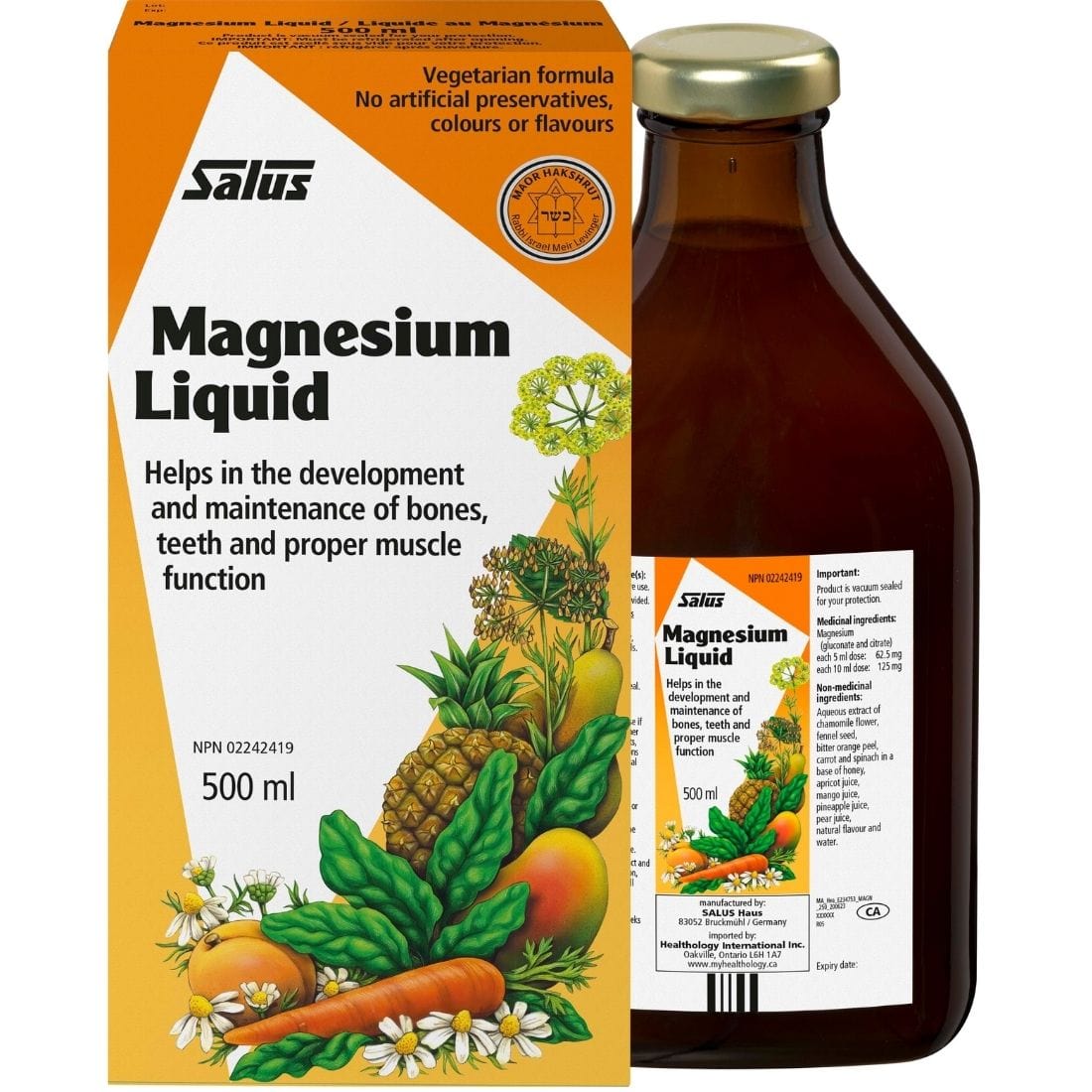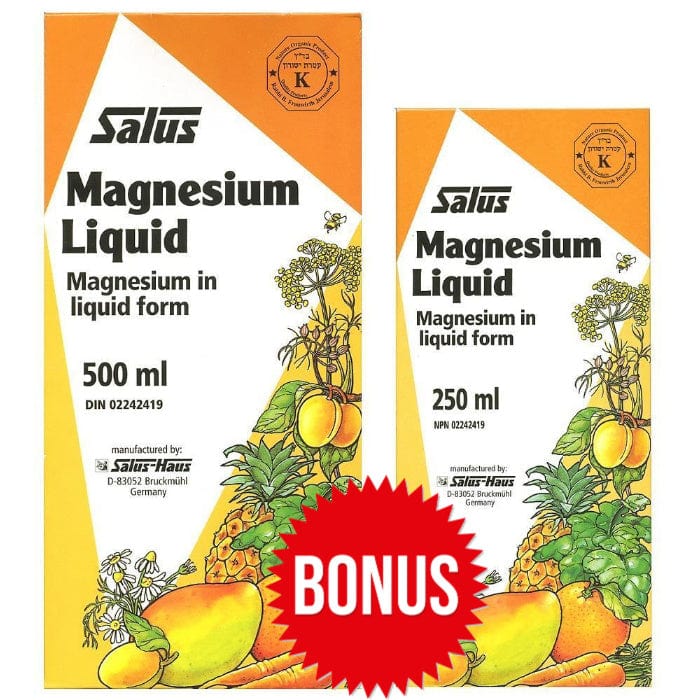Salus Magnesium Liquid Details
- Cardiovascular support
- Better digestion
- Restful sleep
- Bone Health
- Alertness
- Asthma support
Salus Magnesium Liquid provides the body with 250mg of highly absorbable elemental magnesium per 20ml serving. Magnesium is the most abundant mineral in the body and is essential for proper calcium absorption. Magnesium supports a healthy circulatory system and helps relax the arteries and muscles. It also benefits the proper functioning of the colon and thus helps in maintaining bowel regularity.
Salus Magnesium Liquid
Magnesium is the most abundant mineral in the body and is essential for proper calcium absorption. Magnesium supports a healthy circulatory system and helps relax the arteries and muscles. It also benefits the proper functioning of the colon and thus helps in maintaining bowel regularity.
Salus Floradix Magnesium Liquid provides the body with 250 mg of highly absorbable elemental magnesium per 20 ml serving.
The following foods also contain certain amounts of Magnesium: Wheat Germ. Millet, Soy, Soy Milk, Tofu, Cashews, Peanuts, Green Leafy Vegetables. Eating some of these foods daily, in addition to taking Salus Floradix Magnesium Liquid, will help ensure an adequate intake of Magnesium per day.
Magnesium is needed for energy production and the need increases with the more exercise you endure...
Magnesium is an important catalyst for the body’s chemical reactions, meaning that it increases the rate at which chemical reactions occur. Some of the most important chemical reactions that involve magnesium are in the Kreb’s cycle, the cycle inside every cell that leads to energy production.
Without magnesium the transmission of nerve and muscle impulses is compromised. This can lead to nervous disorders and muscle weakness or twitches. Magnesium is a useful supplement for PMS symptoms that involves irritability and mood swings. Magnesium also decreases menstrual pain by relaxing the uterine muscles. In pregnancy magnesium acts as a uterine relaxant and can prevent premature labour.
Studies show supplemental magnesium in pregnancy also decreases the risk of birth defects such as cerebral palsy. Magnesium is an important mineral for cardiovascular health. It regulates the heartbeat, prevents the calcification of arteries and relaxes arterial vessels to prevent hypertension. Magnesium has also been researched for its ability to reduce cholesterol and protect against osteoporosis.
Sources of Magnesium
Magnesium can be found as a lone mineral, usually in tablet or capsule form (rarely as a powder). Chelated or citrated magnesium supplements are easier for the body to use and can be taken with or without food. Chelated simply means that magnesium is bonded to a protein molecule, for example aspartate or glycinate, and citrated means that magnesium is bonded to a citrate molecule.
Both processes enhance magnesium’s absorption in the intestinal tract but decrease the amount of magnesium that is available in one supplemental dose versus magnesium oxide. The magnesium in antacids is not a good supplemental source because it neutralizes stomach acid and will impair the absorption of other minerals, like calcium.
Magnesium is more commonly used in a Calcium/Magnesium complex. They are available as tablets, capsules, powders and liquids. Magnesium is found in the same forms as are available in single magnesium supplements. When choosing a Cal/Mag complex consider the ratio of calcium to magnesium. The most popular is 2 calcium:1 magnesium because calcium is normally recommended at twice the daily amount as compared to magnesium. However for those individuals in need of extra magnesium 1:1 and 3:2 (Cal:Mag) ratio supplements are available.
Coral calcium is an option for those who use a calcium/magnesium complex. Coral calcium contains a form of magnesium oxide that has better absorption because it is a naturally occurring magnesium. It occurs in a 1:4 ratio (magnesium:calcium) and is found in a complex with many other minerals. Two types of coral calcium exist, fossilized and marine. Fossilized coral is farmed after it floats to the top of the ocean while marine grade is live coral that is vacuumed from the ocean floor. There is a debate between the maker of both types as to which is better with no clear winner emerging. One must consider the ecological effect of both processes when purchasing coral calcium. Ensure that your supplement is tested for contaminants since the coral is farmed from the ocean. Even after purification coral calcium contains minute amounts of heavy metals and should not be consumed by pregnant or nursing women.
The body’s need for magnesium is increased by heavy exercise, the consumption of alcohol and the use of diuretics, oral contraceptives or hormone replacement therapy. Diarrhea, fluoride intake and high levels of zinc and vitamin D increase the body’s need for magnesium. Magnesium absorption is decreased by fat-soluble vitamins (vitamins A, D, E and K), fatty foods, calcium, cod liver oil and foods containing oxalic acid. Oxalic acid containing foods include almonds, chard, cocoa, rhubarb, spinach and black tea.
